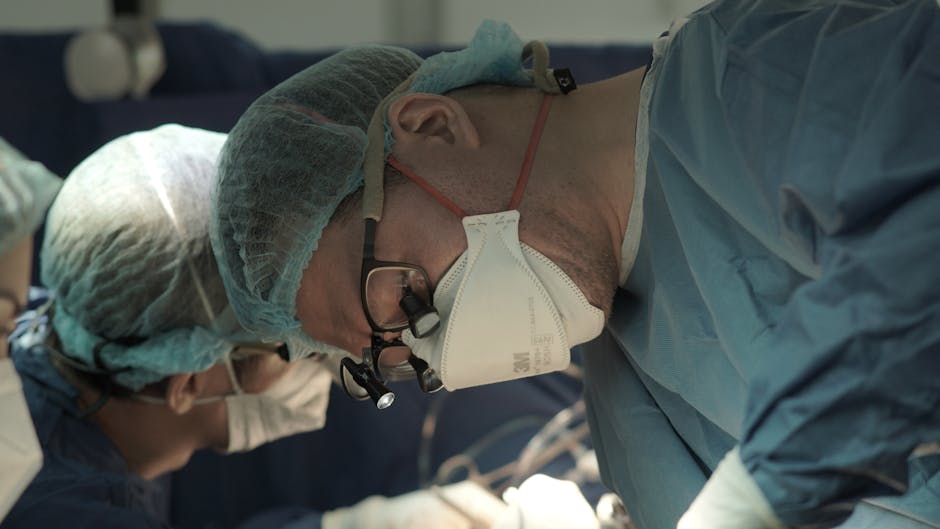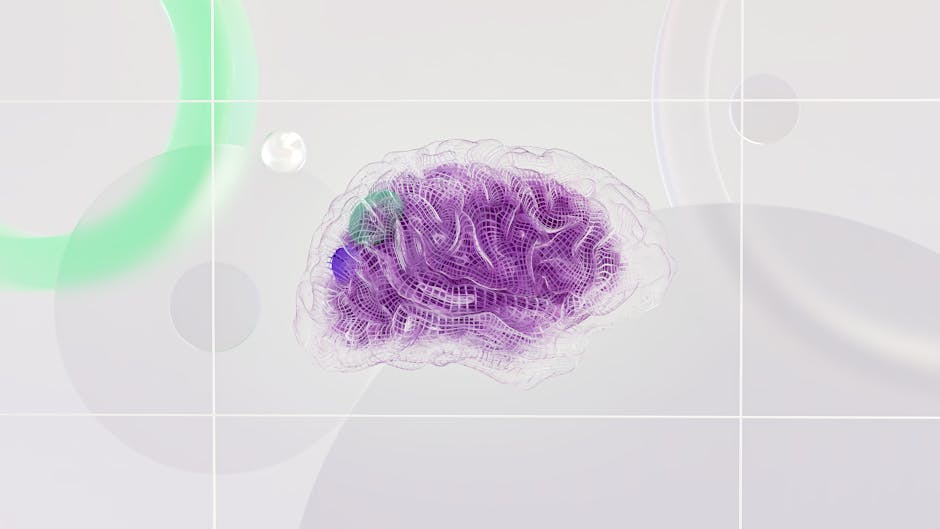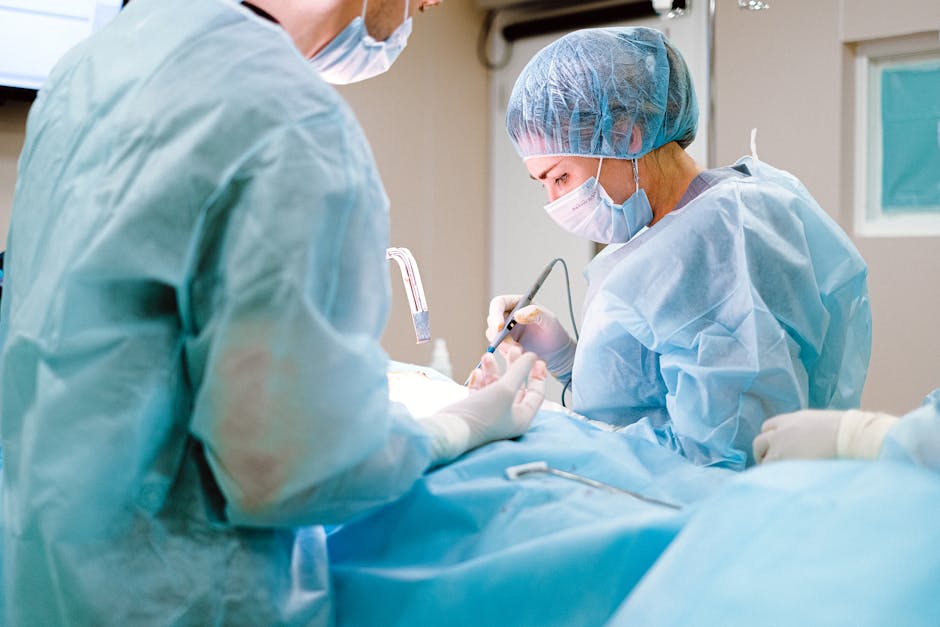AI in Leeds’ Healthcare Sector: Pioneering Medical Advances
You’re on the brink of a healthcare revolution in Leeds, where AI’s cutting-edge innovations are transforming medical practises.
From sharp diagnostic tools to surgical accuracy, and from predictive patient care to groundbreaking research, AI is streamlining operations with precision.
As you delve into this analysis, discover how Leeds is pioneering advancements that are not just improving lives but reshaping the very fabric of healthcare.
Embrace the change that’s setting a new standard in medicine.
Key Takeaways
- Integration of AI improves accuracy and speed in disease detection, analysing radiographs, CT scans, and MRIs to identify anomalies.
- Robotic assistance with AI algorithms ensures superhuman precision in surgeries, with virtual simulations allowing surgeons to practise in a risk-free environment.
- AI’s predictive analytics anticipate health outcomes and optimise treatment plans, with real-time monitoring detecting subtle changes for timely interventions.
- AI revolutionises drug discovery, enhances medical research, and streamlines hospital operations, making the healthcare system more efficient and patient-centred.
Revolutionising Patient Diagnostics

You’ll witness a transformative shift in patient diagnostics as Leeds integrates artificial intelligence into its healthcare framework, improving accuracy and speed in disease detection. This innovation is particularly evident in the realms of diagnostic imaging and symptom analysis, where AI’s capacity to discern patterns imperceptible to the human eye elevates the standard of care.
In diagnostic imaging, AI algorithms analyse radiographs, CT scans, and MRIs with a precision that surpasses traditional methods. They’re trained on vast datasets, enabling the identification of minute anomalies that could signify early stages of diseases such as cancer. This means you’re getting a diagnosis that’s not only faster but potentially life-saving due to earlier intervention.
Symptom analysis, too, is undergoing a radical overhaul. AI systems parse through symptoms, vitals, and patient histories, cross-referencing this information with global medical data. This analysis yields a nuanced understanding of your health condition, far beyond the reach of conventional diagnostics. You’ll benefit from a system that learns and improves continuously, ensuring that each diagnosis is informed by the latest medical insights and trends.
Leeds’ healthcare AI isn’t just cutting-edge; it’s a beacon for future global health practises, setting a benchmark that others are sure to follow.
Enhancing Surgical Precision

Consistently, your surgical outcomes in Leeds are being elevated to unprecedented levels of accuracy through the integration of AI technologies. Robotic assistance, spearheaded by AI algorithms, is revolutionising the operating theatre, ensuring that every incision and suture is placed with superhuman precision. These robotic systems provide you with real-time feedback, reducing the margin for error and enhancing the safety of complex procedures.
Virtual simulations, powered by sophisticated AI models, allow you to rehearse surgeries in a risk-free environment. You can now explore various scenarios and perfect your technique before setting foot in the actual operating room. This preparation translates to increased confidence and competence during live surgeries, mitigating potential complications.
The analytical prowess of AI also aids in surgical planning. By processing vast datasets, AI helps you predict outcomes with greater accuracy, thus tailoring interventions to the individual needs of your patients. This personalised approach ensures that surgical strategies aren’t just innovative, but also incredibly precise and patient-centric.
In Leeds, the future of surgery isn’t just envisioned; it’s realised every day, as AI continues to refine the tools and techniques at your disposal.
Predictive Analytics in Patient Care

Beyond enhancing surgical precision, AI’s predictive analytics are transforming patient care in Leeds. These analytics anticipate health outcomes and optimise treatment plans, using vast data sets to identify patterns and predict potential health events before they occur. This allows for proactive rather than reactive care.
Here’s how predictive analytics is revolutionising healthcare:
-
Real-time monitoring: AI algorithms continuously analyse patient data, detecting subtle changes that may indicate deterioration or improvement. This enables timely interventions.
-
Risk stratification: Patients are categorised based on their likelihood of developing certain conditions. This ensures resources are allocated effectively and high-risk individuals receive the attention they need.
-
Personalised medicine: Predictive models inform more tailored treatment regimens based on individual patient data. This leads to better outcomes and more efficient care.
By leveraging these tools, healthcare providers in Leeds aren’t just waiting for symptoms to manifest. They’re staying ahead of illnesses. As a patient, you’re no longer a passive recipient of healthcare services. Instead, you’re at the centre of a sophisticated, data-driven ecosystem that’s designed to maintain your health proactively.
This innovative approach is setting a new standard for healthcare, not just in Leeds but globally, as predictive analytics become an indispensable part of modern medicine.
AI-Powered Research Breakthroughs

Building on the momentum of predictive analytics, AI is also powering research breakthroughs that you’ll directly benefit from in Leeds’ healthcare sector. The integration of AI is revolutionising the way researchers approach drug discovery. Gone are the days of lengthy trial-and-error processes. Now, AI algorithms swiftly analyse complex biochemical interactions, predicting how new drugs might behave in the body with unprecedented accuracy. This means you can expect more targeted therapies to become available faster, addressing diseases that once seemed untreatable.
Moreover, in genomic analysis, AI’s role can’t be overstated. It’s parsing through vast datasets of genetic information, identifying patterns that might elude even the most seasoned researchers. For you, this means a leap towards personalised medicine, where treatments and preventive measures are tailored to your unique genetic makeup. AI’s ability to decipher and make connexions within our DNA is leading to a deeper understanding of genetic disorders, paving the way for innovative treatments that are customised for individual patients.
AI’s analytical capabilities are reshaping the landscape of medical research in Leeds. They’re not just incremental changes; these are transformative strides that promise to enhance the quality and precision of healthcare you receive.
Streamlining Hospital Operations

Harnessing AI’s potential, you’ll now see Leeds’ hospitals becoming more efficient as they streamline operations, from appointment scheduling to patient care coordination. These advancements aren’t just incremental; they’re transformative.
With AI’s analytical prowess, hospitals can dissect complex data, identifying patterns that lead to smarter decision-making. This is where you witness the practical applications of digital triage and resource optimisation—two key areas where AI is making a tangible impact.
Consider these pivotal changes:
-
Digital Triage Systems: By prioritising patient care based on urgency and available resources, AI ensures that critical cases receive immediate attention, reducing wait times and improving outcomes.
-
Predictive Resource Allocation: AI’s predictive analytics forecast patient inflows, allowing hospitals to optimise staff scheduling, equipment usage, and bed occupancy.
-
Automated Administrative Tasks: Routine processes like data entry are expedited, freeing healthcare professionals to focus on direct patient care.
These innovations aren’t just about efficiency; they’re about reshaping the healthcare landscape in Leeds. By intelligently allocating resources, AI is carving a path to a more responsive, patient-centred healthcare system.
As you navigate this new terrain, it’s clear that AI’s role is crucial, and its potential, boundless.
Frequently Asked Questions
How Is Patient Privacy and Data Security Being Handled in the Implementation of AI Technologies in Leeds’ Healthcare Sector?
You’re facing strict AI regulations to prevent data breaches, ensuring that patient privacy is paramount. Innovative encryption and access controls protect sensitive information as AI integrates into healthcare practises.
What Are the Ethical Considerations and Guidelines in Place for AI Decision-Making in Patient Treatment Plans?
You’re navigating a maze of ethical considerations with AI accountability at the heart, ensuring ethical transparency guides AI’s role in treatment plans, balancing innovation with patient rights and professional healthcare standards.
How Is AI Integration Impacting the Job Roles and Employment Opportunities for Healthcare Professionals in Leeds?
You’ll find AI integration is reshaping healthcare jobs in Leeds, demanding new training programmes and posing regulatory challenges that professionals must navigate to thrive in this innovative, rapidly evolving employment landscape.
What Measures Are Being Taken to Ensure Equitable Access to Ai-Enhanced Healthcare Services Across Different Socioeconomic Groups in Leeds?
You’re seeing policy innovation bridging the digital divide, ensuring you and others from varying backgrounds have equal access to AI-enhanced healthcare, regardless of socioeconomic status in your community.
How Is the Public Being Educated About the Benefits and Limitations of AI in Healthcare to Manage Expectations and Foster Trust in These New Technologies?
You’re being informed about AI in healthcare through targeted campaigns that clarify benefits and address misconceptions, ensuring technology acceptance doesn’t falter due to unrealistic expectations or unfounded fears. It’s a trust-building educational strategy.
Conclusion
Imagine you’re navigating a complex labyrinth, where each turn represents a leap forward in healthcare.
In Leeds, AI serves as your guide, illuminating pathways to revolutionary diagnostics, precise surgeries, and predictive care. It’s the Minotaur turned ally, transforming a maze of medical challenges into a roadmap for healing.
As you emerge, it’s clear that AI isn’t just an assistant; it’s an architect, reshaping the very fabric of patient care with innovative mastery.
Contact us to discuss our services now!
